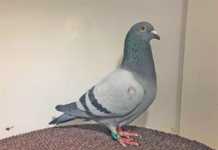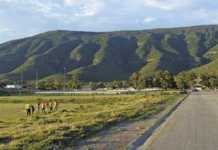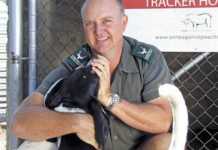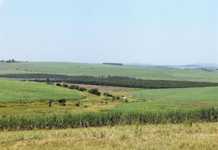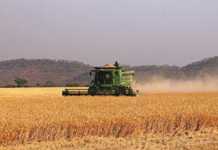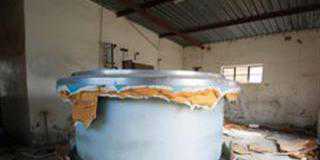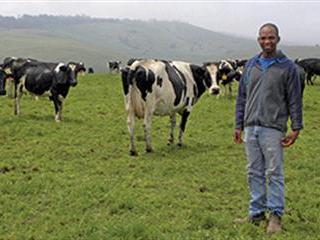
There’s always a right way and a wrong way to do things – and it’s clear 25-year-old Sifiso Ntshize has set about building a career in the commercial dairy industry the right way. Since matriculating in 2006, Sifiso has gained work experience in Germany and on four dairy farms in the Midlands, and has gone on to become the first black assistant manager to be employed by Creighton dairy farmer Mark Hauff.
If Sifiso’s career continues on its current trajectory, he should realise his dream of becoming a farm owner one day.
Sifiso would not have made such strides over a short period without the support of a handful of visionary farmers, some of whom continue to play a key role in shaping his future.
College
Sifiso’s journey began in 2002, when his mother enrolled him at Zahke Agricultural College in Baynesfield, outside Pietermaritzburg. “I never intended to go into agriculture. My grandfather bought a tractor when he retired and I would plough for the community during school holidays. My mother saw how I enjoyed it and when she heard about Zahke, she wanted it for me.
I was still young when I went to Zahke and that is how I developed a love of agriculture,” Sifiso recalls. At around R35 000 per year, education at Zahke does not come cheaply. Still, his mother managed to pay the fees until Grade 10, after which he was awarded a 50% bursary. After matriculating, he met Howick dairy farmer Judy Stuart, founder of the Future Farmers Foundation, a non-profit organisation which aims to equip young people with a genuine passion for farming with commercial skills. “It was my dream to go overseas. I told Judy and she set up an overseas placement for me,” Sifiso says.
Apprenticeship overseas
Sending Sifiso overseas to gain work experience was the start of an apprentice programme which today has 60 ‘future farmers’ on its books. These include interns in the US and Australia, managers, apprentices and aspiring farmers, and others who are awaiting apprenticeship opportunities. They are placed not only in the dairy industry but also in beef, crops (maize, wheat, soya beans and vegetables), horticulture and turf management.
In 2007, Sifiso left for Germany, working shoulder-to-shoulder with his hosts Andreas and Elizabeth Thiessen on their dairy and crop farm. Sifiso was what Judy called a rough diamond when he left, and a polished gem when he returned 18 months later. “The apprenticeship opened my eyes to the realities of farming. We worked long, hard hours. It helped me to get out of the mindset of doing an eight-hour job. When you see the boss working alongside you, it motivates you to do more. You know then that working is for everyone,” Sifiso says.
Kamberg dairy farmer Anthony Galliers offered 22-year-old Sifiso a position when he returned at the end of 2009. Anthony played an important role in Sifiso’s training. However, one year later, Rietvlei dairy farmer Alan Rowe was murdered 12 months later, and Sifiso was asked to work for the Rowes. He acted as a go-between, facilitating communication between the family, management and staff.
In September 2010, he took up an opportunity as assistant manager with Mark Hauff, who milks 1 200 Holsteins on 1 100ha. Sifiso works alongside farm manager Matthew Beauclerk in the dairy, on the animal husbandry side in the mornings, and with Mark in the afternoons, learning about crops and pastures. “I am trying to learn as much as possible, both inside the dairy and outside,” Sifiso says.
Five students have already passed through Mark’s and Matthew’s hands: two from Mangosutho Technikon and three from Zahke. Mark aims to always have one student on his farm, and in so doing is chipping away at the huge need for practical training for young farmers.
“We enjoy teaching students the basic skills, provided they are keen to learn. To turn the land question around, we need blacks who have a tangible and genuine attachment to the land, to physically run farms. But I am worried that the students will hit a glass ceiling if they are only taught practical skills like animal husbandry and crops. They also need to learn business and budgeting skills,” Mark says.
To address this, the Future Farmers Foundation is working towards introducing a business course. This would entail one day of lectures every week for a year, delivered on a farm in the area. The concept does, however, require financial support from government agencies to make it possible.
Sifiso is planning ahead, already trying to acquire a farm through government. “But it is not easy. Government wants to deal with co-operatives but I think they should focus on empowering individuals – and maybe in the future we will have more successful black farmers,” he says.
Contact Judy Stuart on 033 330 4322 or 083 555 0082 or at [email protected], Sifiso on 072 812 8094 or at [email protected]

